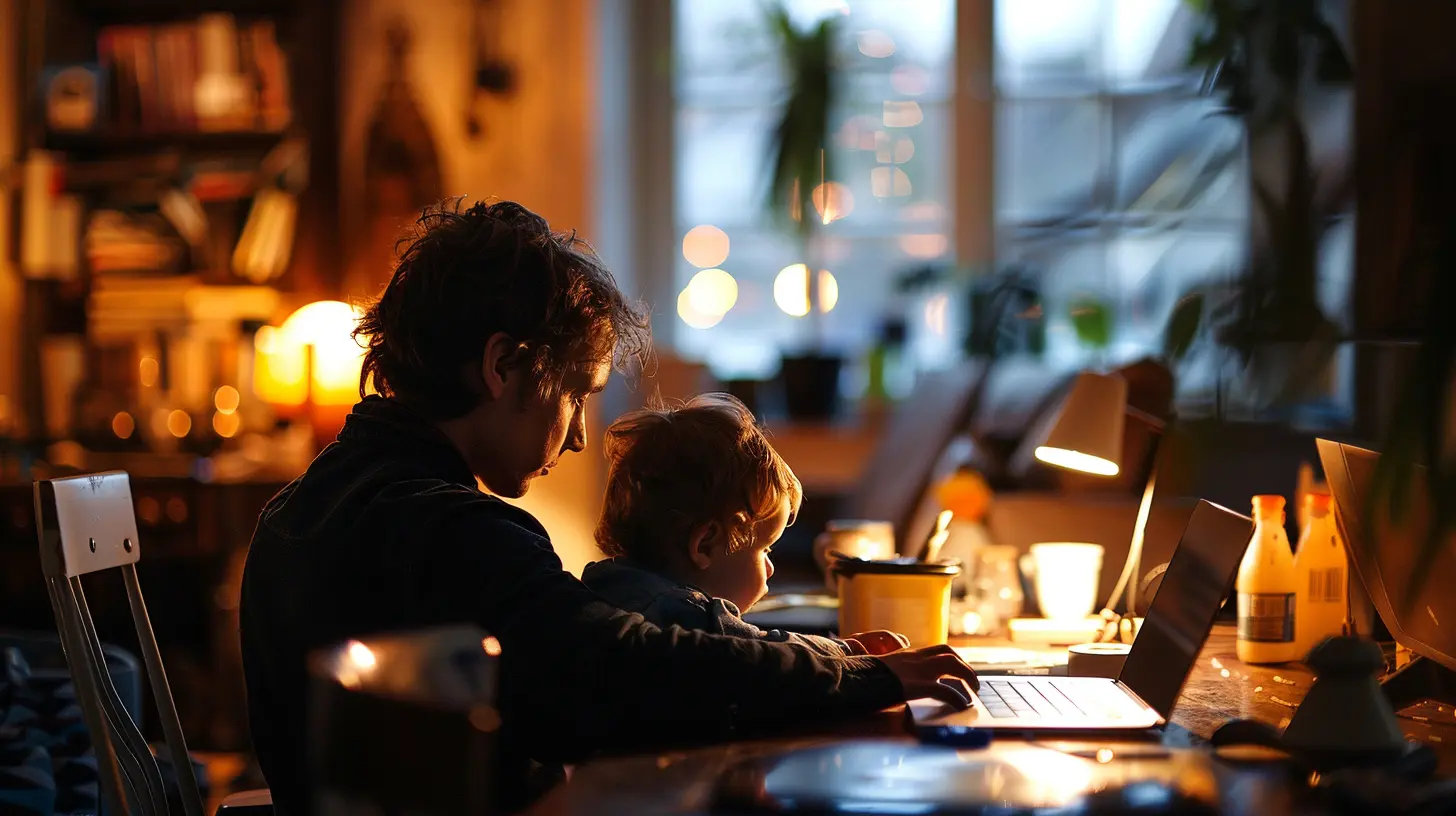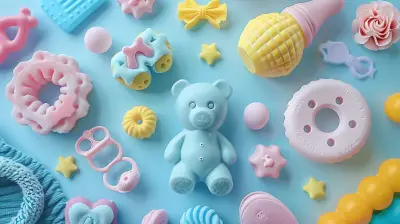Routines for Encouraging More Household Participation from Kids
11 April 2025
Getting kids to pitch in around the house can feel like pulling teeth. You ask them to set the table, and suddenly, they forget how to walk. You suggest cleaning up their toys, and they turn into world-class negotiators. Sound familiar?
The truth is, kids thrive on routine. They love knowing what to expect, and when you build structure around household tasks, it becomes second nature to them. Rather than chasing them down for help, imagine a home where kids automatically take responsibility for their share of the work. Sounds like a dream, right? Well, it's possible—with the right routines.
In this guide, we’ll dive into practical and effective ways to encourage kids to participate more in household chores without constant nagging or power struggles. 
Why Household Participation Matters for Kids
Before we jump into the how, let’s talk about the why.Giving kids responsibilities at home teaches them essential life skills like discipline, teamwork, and accountability. It helps them develop a sense of ownership and pride in their environment. Plus, it lightens your load as a parent—because let’s be honest, running a household is no small feat.
When kids actively participate in household tasks, they gain:
✔ Independence: Learning to care for their space fosters self-sufficiency.
✔ Confidence: Completing tasks on their own builds self-esteem.
✔ Respect for Work: They appreciate the effort it takes to maintain a home.
✔ Stronger Family Bonds: Working together creates a sense of unity.
So, how do we make it happen without the usual eye rolls and groans? Let’s break it down. 
1. Start Early and Keep it Age-Appropriate
If you wait until your child is a teenager to introduce chores, good luck! The earlier kids start helping, the more natural it becomes. Even toddlers can join in with simple tasks like:- Putting toys in a bin
- Wiping up small spills
- Throwing away trash
As kids grow, their responsibilities should grow, too. Here’s a quick age guide for household tasks:
Ages 2-4: Picking up toys, wiping tables, feeding pets
Ages 5-7: Making their bed, setting the table, sorting laundry
Ages 8-10: Doing dishes, sweeping floors, taking out the trash
Ages 11+: Cooking simple meals, cleaning bathrooms, yard work
When tasks match their abilities, kids feel capable and are more likely to participate. 
2. Make It a Daily Routine (Not a Random Demand)
Nobody likes surprises when it comes to extra work—kids included. Instead of springing chores on them randomly, build tasks into their daily routine.For example:
- Morning Routine → Make the bed, get dressed, put dishes in the sink.
- After School Routine → Unpack backpack, put shoes away, feed pets.
- Evening Routine → Help with dinner, clean up toys, set out clothes for tomorrow.
When chores become part of everyday life, kids stop seeing them as annoying interruptions. 
3. Make it Fun (Yes, Really!)
Okay, let’s be honest—chores aren’t always thrilling. But with a little creativity, you can make them more engaging!Ways to Add Fun to Chores:
🎵 Turn on music: Dance parties while cleaning? Yes, please!⏳ Race against the clock: "Can you clean your room before the timer runs out?"
🎮 Turn it into a game: Who can pick up the most toys the fastest?
🏆 Offer friendly competition: "Let’s see who can fold their laundry the best!"
Kids respond way better to fun than they do to nagging. A little creativity goes a long way!
4. Give Them Choices (Because Nobody Likes Being Bossed Around)
Instead of saying, "You HAVE to do this now," try, "Would you rather take out the trash or unload the dishwasher?"When kids have a say in what they do, they feel more in control and less resistant. It shifts from, "I have to do this," to, "I get to choose how I help."
Another tip? Let them decide the order of their tasks. As long as everything gets done, does it really matter what comes first?
5. Show Appreciation (Not Just Expectations)
Imagine working hard all day and nobody noticing. You’d feel pretty unmotivated, right? Kids are no different. A simple "Thanks for helping!" or "Wow, you did a great job!" makes a huge difference.Ways to Show Appreciation:
❤️ A high-five after a job well done.👏 A sticker chart for younger kids.
🥳 A fun reward—like choosing the family movie.
When kids feel valued, they’re more likely to contribute willingly.
6. Lead by Example (Because Kids Copy EVERYTHING)
Let’s be real—if kids see YOU groaning about chores, they’re not going to be eager to help. But when they see you taking care of responsibilities without complaining, they’ll learn that it’s just part of life.Try involving them in what you’re already doing:
👉 "Want to help me fold the laundry while we chat?"
👉 "Let’s cook dinner together—it’ll be fun!"
The more kids see teamwork in action, the more likely they are to join in.
7. Create a Visual Chore Chart
Some kids need to see their progress to stay motivated. A visual chore chart works wonders, especially for younger kids.What to Include in a Chore Chart:
✔ Kid-friendly design (pictures for younger children!)✔ Clear daily and weekly tasks
✔ A way to check off completed chores (stickers, magnets, or dry-erase markers)
Seeing tasks visually makes them more manageable and satisfying to complete.
8. Use Natural Consequences (Not Harsh Punishments)
If kids don’t complete their tasks, instead of yelling or punishing, use natural consequences.🚫 Didn’t put dirty laundry in the basket? They run out of clean clothes.
🚫 Refuse to clean up toys? They stay put away for a while.
When kids experience the results of their actions firsthand, they’re more likely to take responsibility next time.
9. Rotate Tasks to Keep Things Fresh
Doing the same chore every day gets boring—so switch things up!- Let kids trade tasks each week.
- Assign "chore buddies" to make things social.
- Introduce occasional "mystery challenges" with small rewards.
Changing things up keeps participation from feeling stale.
10. Keep Expectations Realistic (Progress Over Perfection)
Let’s be honest—your 6-year-old won’t fold laundry perfectly, and dinner might get a little messy with a young helper. But that’s okay! The goal isn’t perfection; it’s participation.Praise effort over results, and remember: they’re learning. With patience and encouragement, they’ll improve over time.
Final Thoughts: Small Steps Lead to Big Changes
Getting kids to help at home isn’t about forcing them—it’s about guiding them into good habits. By setting routines, making chores fun, and giving them a sense of ownership, you’ll raise responsible kids who contribute willingly.Sure, there might be some resistance at first, but stick with it. One day, they’ll do their chores without being asked—and that, my friend, will feel like a parenting win.
all images in this post were generated using AI tools
Category:
Parenting RoutinesAuthor:

Kelly Snow
Discussion
rate this article
4 comments
Lulu Gutierrez
Routines truly foster responsibility and teamwork in kids.
May 4, 2025 at 2:28 AM

Kelly Snow
Absolutely! Routines help children understand their roles and promote collaboration, building essential life skills.
Siena Davis
Who knew that turning dishwashing into a dance-off could inspire teamwork? With a sprinkle of silly songs and a dash of reward charts, our home has transformed into a mini reality show! Grab your glittering chore medals, kids—participation is the new family sport! 🏆🎉
April 12, 2025 at 3:57 AM

Kelly Snow
I'm glad to hear that! Turning chores into fun activities is a fantastic way to inspire teamwork and engagement. Keep up the great work! 🏅✨
Aris McCall
Establishing consistent routines fosters responsibility and engagement, helping children understand their role in household responsibilities.
April 11, 2025 at 3:06 PM

Kelly Snow
Absolutely! Consistent routines not only promote responsibility but also empower kids to actively engage in household tasks, reinforcing their sense of ownership and importance within the family.
Quorra O'Neal
Transform chaos into cooperation: structured routines turn reluctant helpers into enthusiastic participants—making family life a joyful team effort!
April 11, 2025 at 4:02 AM

Kelly Snow
Absolutely! Structured routines can foster cooperation and excitement among kids, transforming chores into fun family activities.



